- Hits: 8457
UMS Awarded 1st Runner Up and Special Honors Outstanding Achievement of Huawei ICT Academy
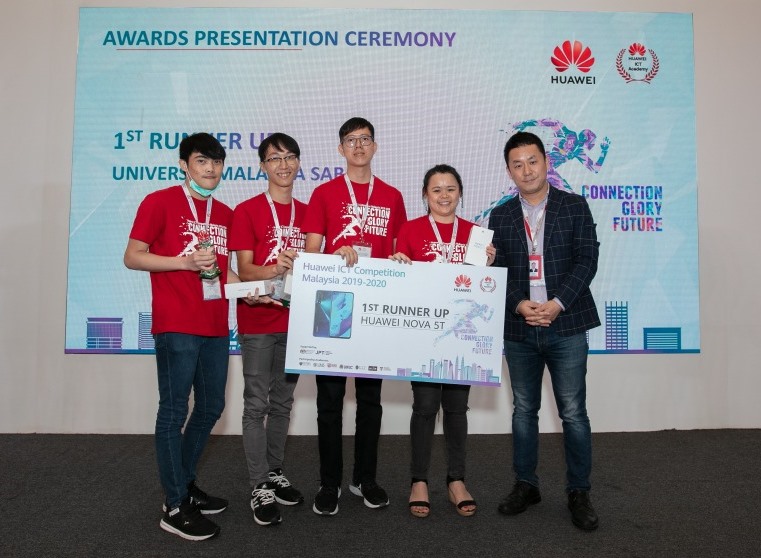 WEDNESDAY, 11 MAC - UMS Team bagged the 1st Runner Up at the Huawei ICT Competition Malaysia Final 2019-2020 in Kuala Lumpur, recently (5 Mac 2020).
WEDNESDAY, 11 MAC - UMS Team bagged the 1st Runner Up at the Huawei ICT Competition Malaysia Final 2019-2020 in Kuala Lumpur, recently (5 Mac 2020).
Top Three winners Liew Chun Khai, Lim Tze Min and Zachary Benjamin Goh Yu Liang from the preliminary state of Huawei ICT Competition that held on 12 -13 December 2019 were selected to follow the Malaysia Final preparation Training that led by a senior lecturer from UMS Faculty of Computing and Informatics, Dr Tan Soo Fun.
According to Dr Tan Soo Fun, the final leg of the Malaysia Final journey brought seven team finalists to Kuala Lumpur, who included 21 students from the seven universities, Universiti Malaysia Sabah (UMS), Universiti Malaya (UMS), Universiti Putra Malaysia (UPM), Universiti Teknologi Petronas (UTP), Universiti Sains Malaysia (USM), Taylor's University and Universiti Tun Abdul Razak (UNITAR).
“The competition, launched in November last year, aimed to nurture local ICT talents and develop the next generation of ICT leaders in Malaysia.
“It aims also to promote the national ICT competitiveness, innovation and creativity, a staple to build a knowledge-based economy,” she said in a statement here, today.
Dr Tan Soo Fun said UMS also received the Outstanding Achievement Award of Huawei ICT Academy Malaysia, which was presented by the Vice President of Huawei Malaysia, Mr David Li.
“This award is to recognise UMS outstanding performance in ICT talents development.
"The award was received by the Dean of UMS Faculty of Computing and Informatics, Prof Dr Abdullah Gani,” she said.



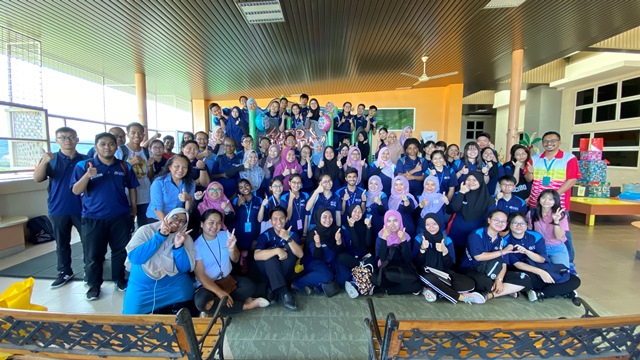 WEDNESDAY, 18 DECEMBER - A group of 85 Universiti Malaysia Sabah (UMS) students of the Public Speaking Class under the Centre for Co-Curriculum and Student Development (PKPP) visited ‘Sekolah Dalam Hospital’ (SDH), Hospital Wanita dan Kanak-kanak Sabah (HWKKS), Likas recently as part of their Corporate Social Responsibility Programme under UMS Siswa-Siswi Prihatin (UMS-SPRINT).
WEDNESDAY, 18 DECEMBER - A group of 85 Universiti Malaysia Sabah (UMS) students of the Public Speaking Class under the Centre for Co-Curriculum and Student Development (PKPP) visited ‘Sekolah Dalam Hospital’ (SDH), Hospital Wanita dan Kanak-kanak Sabah (HWKKS), Likas recently as part of their Corporate Social Responsibility Programme under UMS Siswa-Siswi Prihatin (UMS-SPRINT).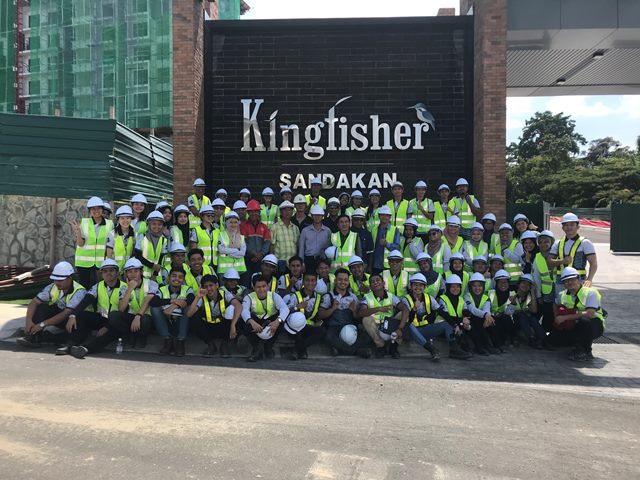 TUESDAY, 10 DECEMBER - An on-site learning program for the construction of Kingfisher Sandakan Condominium by a total of 61 students of Civil Engineering from the Faculty of Engineering, Universiti Malaysia Sabah (UMS) recently could take the student a closer look into the 3D (Difficult, Dangerous, and Dirty) elements which can be seen and understood better in a real construction site.
TUESDAY, 10 DECEMBER - An on-site learning program for the construction of Kingfisher Sandakan Condominium by a total of 61 students of Civil Engineering from the Faculty of Engineering, Universiti Malaysia Sabah (UMS) recently could take the student a closer look into the 3D (Difficult, Dangerous, and Dirty) elements which can be seen and understood better in a real construction site.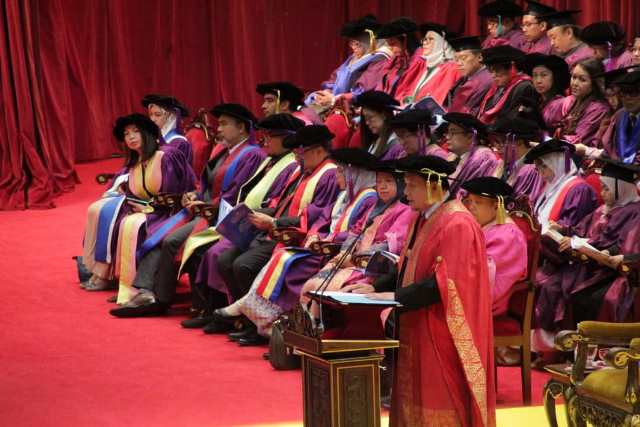 AHAD, 24 NOVEMBER - Universiti Malaysia Sabah (UMS) merupakan tempat pengajian yang menjadi penanda aras dalam ketamadunan intelektualisme mahasiswa sekali gus pembekal sumber manusia yang berkualiti untuk negara dan bangsa.
AHAD, 24 NOVEMBER - Universiti Malaysia Sabah (UMS) merupakan tempat pengajian yang menjadi penanda aras dalam ketamadunan intelektualisme mahasiswa sekali gus pembekal sumber manusia yang berkualiti untuk negara dan bangsa.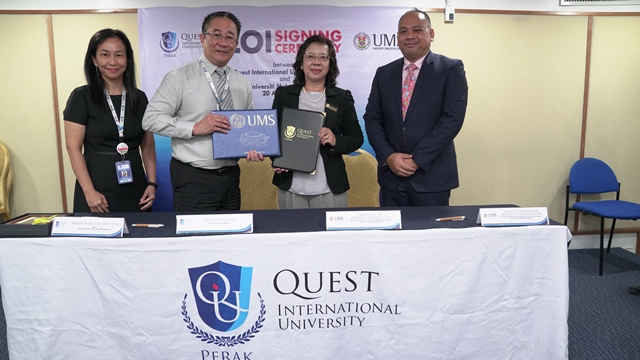 FRIDAY, 23 AUGUST - Borneo Tourism Research Centre, under the Faculty of Business, Economics and Accountancy, Universiti Malaysia Sabah (UMS) and Faculty of Business and Management, Quest International University Perak (QIUP), signed a letter of intent recently to strengthen cooperation, coordination and mobility in the field Tourism and Sustainability during the Sustainability Seminar 2019 at QIUP, Ipoh, Perak.
FRIDAY, 23 AUGUST - Borneo Tourism Research Centre, under the Faculty of Business, Economics and Accountancy, Universiti Malaysia Sabah (UMS) and Faculty of Business and Management, Quest International University Perak (QIUP), signed a letter of intent recently to strengthen cooperation, coordination and mobility in the field Tourism and Sustainability during the Sustainability Seminar 2019 at QIUP, Ipoh, Perak.